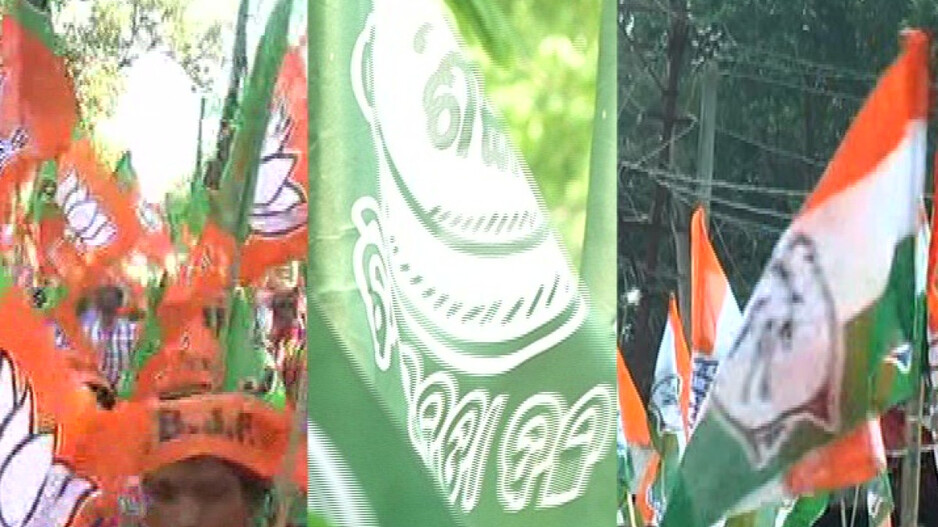Recommended Stories
Predicting election outcomes is a hazardous business at the best of times. Even seasoned election watchers and ‘trained’ psephologists have ended up with egg on their faces with their predictions in the past. But so strong is the urge to indulge in crystal gazing that very few people can resist the temptation even after having their predictions go horribly wrong numerous times in the past. From psephologists to astrologers, from journalists to the common man – no one is really immune to this typically Indian ‘disease’ of foretelling the election results before the actual results come in.
Journalists, in particular, suffer from this ‘disease’ more than others. Any journalist worth his/her salt would do his/her share of election forecast before every poll. Part of the reason for this is the fact that most people believe, erroneously, that they (journalists) have a finger on the pulse of the voters and would not let them get away with an apologetic “Frankly, I don’t really know” or an evasive “Your guess is as good as mine”, as has happened countless times with this columnist. People will just not take ‘No’ for an answer and will keep pressing scribes till they come out with a figure. This, in turn, feeds their ego and they start believing they actually have a hotline to the minds of the voters. More often than not, the predictions are pure guesswork or an unwitting reflection of their political biases.
During a chat after a panel discussion on the eve of the last elections, the Editor of a TV news channel with unmistakable BJP leanings explained at great length to yours truly – analyzing the election scenario constituency-wise - why the BJP would not win ‘anything less than’ 64 Assembly seats. The BJP ended up with 23, almost one third of it! And it has always been like it. During a day-long visit to various places in the Puri Lok Sabha seat in 1996, this columnist met an old colleague, a native of the holy town, for his take on the outcome before returning to Bhubaneswar. He took out a piece of paper and started an impromptu arithmetic lesson by scribbling various figures, adding and subtracting numbers to zero in on the difference by which the Janata Dal (the precursor of the Biju Janata Dal) would win: ‘not less than 1, 20, 000 votes’. He was, of course, spot on about the winning margin, But the only hitch was that it was the Congress candidate who won!! Two years later, this writer was chided by a veteran journalist (now dead) for being part of a survey team that had predicted 15-16 Lok Sabha seats for the newly formed BJD-BJP alliance. “Mark my words. If the alliance wins more than five seats, I would quit journalism,” he announced grandiosely. The alliance won 16!! (The veteran journalist, of course, never kept his promise!)
But despite countless such faux pas, the journalist tribe hasn’t stopped forecasting election outcomes. And this election is no different. Everyone talks about a supposed ‘undercurrent’ against the BJD; but no one really know how far it will affect the results. Amusingly, the figures being quoted by them vary wildly – from a lowly 75-80 to an unprecedented 130 for the BJD (the highest achieved so far is 123 by the Biju Patnaik led Janata Dal in 1990), depending on who you speak to. Correspondingly, the figures being quoted for the BJP, the main challenger, vary between 20-25 to 65-70! The one thing about which there is near unanimity is that the Congress would barely cross single digit.
In a country as diverse as India, with issues and factors varying from one region to another (and even one constituency to another), there is simply no way anyone – journalist, psephologist or political pundit – can predict the outcome of an election in the country or the state. For the same reason, no opinion poll/election survey can gauge the mood of the electorate – and thus the election outcome – accurately, given the minuscule sample size they bank on to make their assessments. Besides, unlike in the past, voters these days are wary of revealing their cards to strangers. Therefore, you would get non-committal answers like “We shall vote for the candidate who will work for us” without naming parties or candidates. That is precisely the reason even exit polls, presumably based on feedback from people coming out of polling booths, have fallen flat on their face. If some prediction still come good, it is more a matter of providence than anything else.
On his part, this columnist would not even dare predict the outcome of the constituency where he would vote – Ekamra – forget foretelling the statewide outcome. He would rather keep his fingers crossed and wait for the final outcome on June 4, notwithstanding the fact that his predictions in the past (yes, he too has played the game before quitting) have never gone wrong.
What about you?
(DISCLAIMER: This is an opinion piece. The views expressed are the author’s own and have nothing to do with OTV’s charter or views. OTV does not assume any responsibility or liability for the same.)













